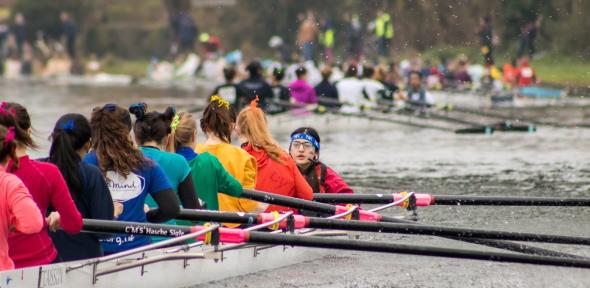
The University of Cambridge is one of the world's leading universities, offering a challenging, flexible and individual learning experience.
Our teaching and research are globally respected, and our graduates are highly sought after by employers around the world. If you have the ability, commitment, and motivation to study here, you can expect to gain a great deal in return.
The University and Colleges
Cambridge is a ‘collegiate’ university. This means it’s made up of:
- Faculties and departments, which provide teaching, supervision and research opportunities
- 31 Colleges, which offer community, support, and a place to live and study
Together, these create a unique academic and social environment.
Faculties and departments
As a postgraduate student at Cambridge, you will belong to a University faculty, department or affiliated institution. These provide:
- All your teaching and supervisions
- Access to specialist facilities
- Regular seminars, workshops, and events - often with eminent speakers
Check the Department Directory for a list of faculties and departments, and the Course Directory to explore what courses they offer.
Cambridge Colleges
Every postgraduate student is also a member of a College. You College provides:
- A supportive academic community and place to live and study
- Opportunities to dine, socialise and take part in events
- Pastoral support and welfare services
You can find out more about the Colleges and how to join one, in the Colleges section of this website.
Professional and Continuing Education
Professional and Continuing Education (PACE) is part of the University of Cambridge and offers part-time and short courses for adults of all ages.
Over 250 courses are available across a wide range of disciplines, including:
- Day schools and residential courses
- Online distance learning
- Part-time undergraduate and postgraduate qualifications
Visit the PACE website for a full list of courses and more information.
University partner institutions (UPIs)
Some postgraduate students undertake research at specialist external institutes that partner with the University. These include:
- BBSRC Babraham Institute
- British Antarctic Survey
- Cambridge Crystallography Data Centre
- European Bioinformatics Institute
- MRC Laboratory of Molecular Biology
- NIAB
- Wellcome Trust Sanger Institute
You’ll still be a Cambridge student, following the same University regulations and having full access to University and College facilities and support. Applications are made in the same way as other postgraduate courses.
Cambridge terminology: A quick guide
Some words and phrases you’ll hear at Cambridge might be unfamiliar. Here’s a handy guide:
- Backs – the scenic area along the River Cam that runs along the "back" of several central Colleges.
- Collegiate university – a university made up of academic departments and Colleges.
- Easter term (summer) – the third term of the academic year (April to June).
- Fellow – a senior academic member of a College.
- Formal (hall) - a formal, 3-course College meal with waiter service and academin gowns.
- Lent term (spring) – the second term of the academic year (January to March).
- Matriculation – your formal admission to the University.
- Michaelmas term (autumn) – the first term of the academic year (October to December).
- MCR (Middle Combination Room) – the postgraduate community and common room within your College.
- Porters – College staff who provide support, information, and security. Your first point of contact at College.
- Punt – a long, flat-bottomed boat propelled by someone standing at the back and pushing a long pole into the river bed.
- Senior Tutor – the College officer responsible for academic, welfare and disciplinary matters.
If you come across a term you don't understand or you simply want to know more, get in touch with the Postgraduate Admissions Office.
